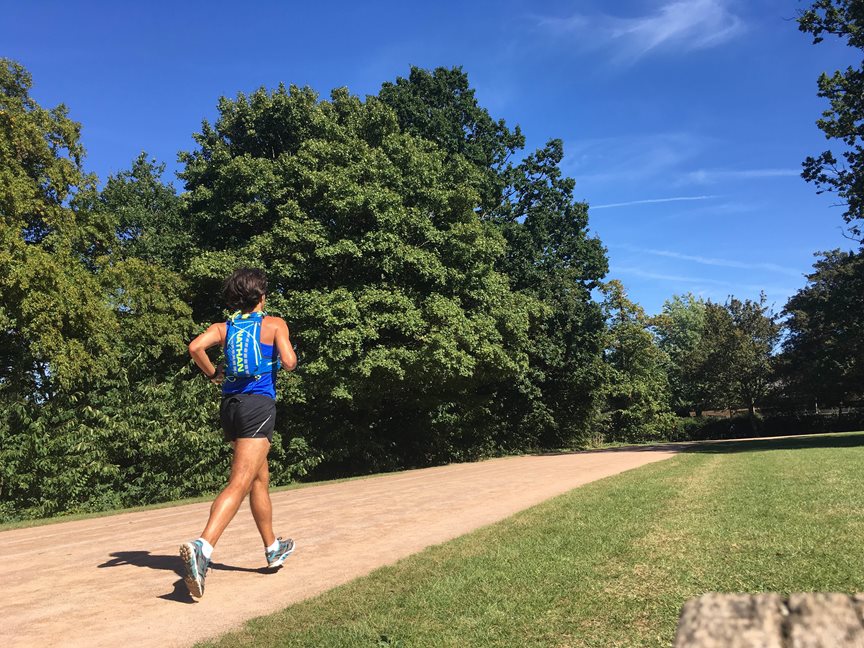Last updated: 02-Mar-16
Written by Sports Dietitian Rin Cobb
“But I’ve just run 20 miles” may seem like a just reason to devour the contents of your fridge but quality needs to be considered as well as quantity if you want to be able to go the distance. For ultra runners, eating right is just as important as pounding out the miles or even testing out your new Garmin. Whether you’re competing at the front or simply out to challenge yourself whilst enjoying the chat along the way it’s good to ask “what does eating right actually look like?”
Everyone has their own thoughts on nutrition and with all the misleading promises from the latest diet crazes from Paleo, gluten-free to low carb you can be forgiven if you’re somewhat confused. So I’m going to help you out; you can eat what you like (as long as it’s a bit of everything in moderation of course). By this I’m talking about a tasty and nutritious balanced diet with starchy carbohydrate, protein, fat, dairy plus your 5 a day to make sure you’re getting all the essential nutrients your body needs to make sure you run your best, stay healthy, happy and injury free.
Perhaps you’re thinking this isn’t anything new and I’m preaching to the converted? But how many of you have got to a point in your training where you’re struggling to muster up the energy to go for that long run? Or have you been unable to finish a race or found yourself wearing daily grumpy pants or even been plagued with that ‘difficult to shift’ cold? These are actually signs you’re not meeting your overall nutrition needs, usually as a result of cutting out the commonly alleged dietary culprits; carbs, fat or dairy. I often see runners succumb to their lacking diets and how demotivated they become but then with a few dietary tweaks I also see them rejuvenated and reaching their running potential. The good news is these symptoms can easily be reversed or ideally prevented in the first place with these top tips.
Top Tips
1. Eat regularly and aim to have starchy carbs (cereal, bread, rice, pasta or potatoes) with each meal to give you a steady supply of energy; wholegrain varieties have even more goodness
2. Spread your protein intake (lean meats, fish, eggs, beans & pulses) throughout the day, as your body will use it better to grow and repair your running muscles
3. Choose healthier unsaturated fats from olive/rapeseed or sunflower oil, nuts, avocado & oily fish
4. Aim to have at least five portions of fruit & vegetables each day; tinned, dried & frozen count too
5. Dairy is your main source of calcium but also a great protein option, so try to have three portions per day; 125g yogurt, 1/3 pint milk (any variety) or matchbox sized cheese all count as a portion
Fundamentally we all love to eat and it’s certainly one of the perks of running for hours on end. For many cutting out an entire food group to seemingly benefit health, performance or weight loss appears to be easier to swallow than eating everything in moderation. However should you choose a varied and balanced diet you really will feel the benefits of meeting your running and health needs and even better, you can have your cake and eat it.
So what have you found works for you in eating right to go the distance?






